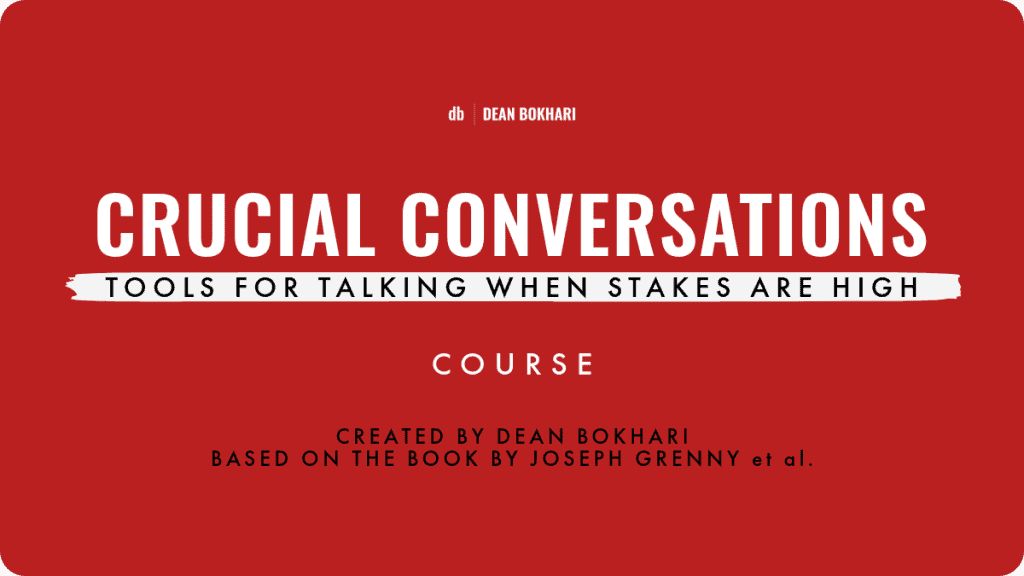5. Manage your emotions by examining and interpreting the facts
Welcome back to this short course on Crucial Conversations: Tools for Talking When Stakes are High. Here’s what we’ve covered so far:
- 1. How crucial conversations turn into emotionally-charged debates
- 2. Be calm + focus on your ultimate goal in a crucial conversation
- 3. Why crucial conversations fail
- 4. Make people feel like you respect them to create a safe conversation
Now, let’s dive into lesson 5…
Imagine this scenario: You’re in the middle of a totally normal conversation when the person you’re talking with makes a harsh or unpleasant comment. Whether they intended to make you angry or not—as soon as you hear it, you lose your temper and all your composure goes directly out the window.
Sound familiar?
It happens to the best of us.
Keeping cool when you hear something that stirs you up emotionally can be excruciatingly difficult.
It’s like a dam trying to hold back a raging river… Unless you do something to redirect your emotions, the dam will break and everyone around you will drown.
Why does this happen?
Sometimes, it happens because you misinterpret the facts of a situation.
Maybe you misinterpret a word or gesture as offensive, get frustrated, and start firing back.
But this is an emotional response—and you’ve got to learn to overcome it during crucial conversations.
An easy way to overcome this is to pause for a moment every time you start to get angry during a conversation…
Is it a word or some gesture that’s making you angry?
If yes, examine the word or gesture in a calm, cool manner, asking yourself if you’re misinterpreting it.
For example, if someone keeps staring at you during a conversation, you might assume they’re being rude (or straight-up creepy.) But if you pause for a sec, and just look at the facts, you might realize this isn’t the case at all. Maybe he’s looking at something behind you or someone beside you. Or maybe he’s just daydreaming and doesn’t even realize he’s staring right at you.
If you only take a moment to examine the facts more accurately, you can avoid emotional flare-ups in situations like this.
This is particularly important in professional settings.
Imagine you and a co-worker are discussing a project with your boss.
During the break, you step out to relax a bit, but your colleague hangs back and continues the meeting. Your immediate reaction might be to get offended or suspicious—thinking that she’s trying to take all the credit for the work.
But if you pause for a moment, and examine the facts, you’ll realize that there could be a million other reasons why she decided to continue talking with the boss.
Maybe she wants to discuss an entirely different matter with your boss. Maybe she needs clarity about something related to the project before stepping out for a break. Or maybe she’s just really passionate about the topic at hand, while you don’t find it very interesting at all.
By reconsidering the facts and weighing different explanations, you have a better chance of finding the correct and rational explanation behind them. And once you interpret such situations properly, you have a better chance of finding the right solution. In the example we just mentioned, for instance, you can later arrange another meeting to discuss your own ideas or those aspects of the project about which you are passionate.
Actionable insights
Next time you hear someone say something that gets you emotional:
- Pause. Do not react emotionally.
- Examine the facts. Ask yourself clarifying questions like:
- Is this really true?
- Did they really mean what I think they meant?
- What else could this mean?
- Weigh different explanations. You might realize it’s got nothing to do with you at all.
If you enjoyed this free course on Crucial Conversations, you’ll love the full version of this training program. Learn more and register below 👇
Regularly: $294.00
Now only: $242.00

